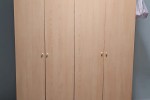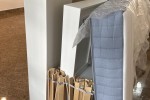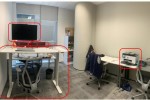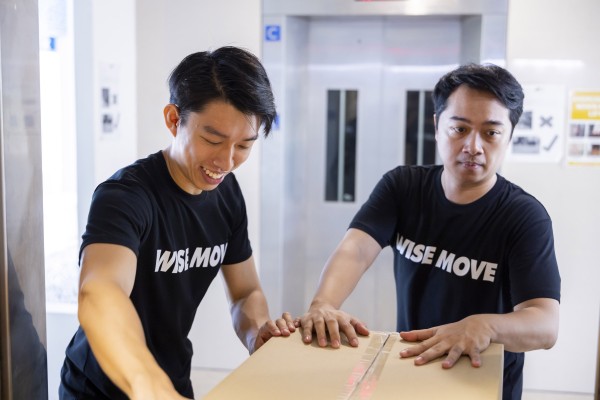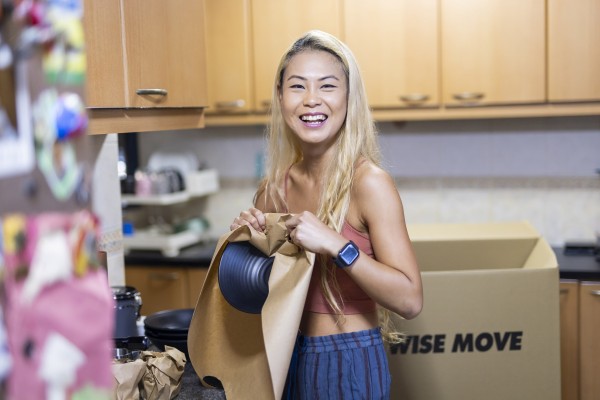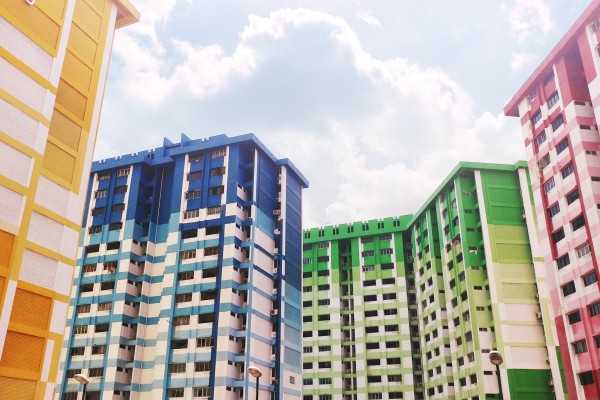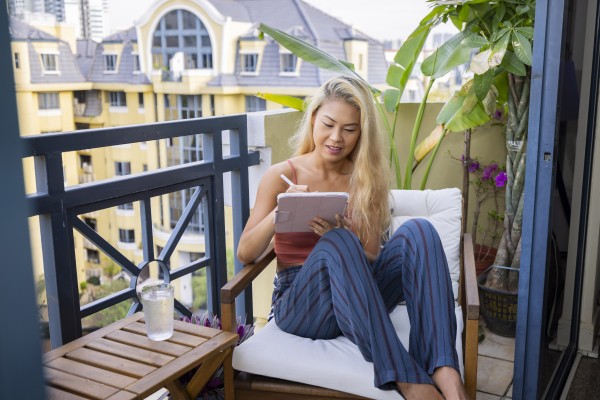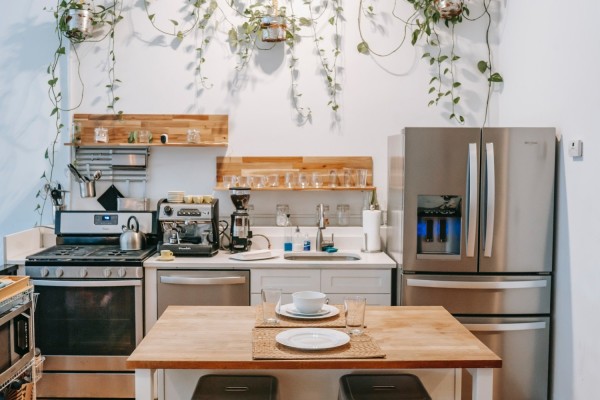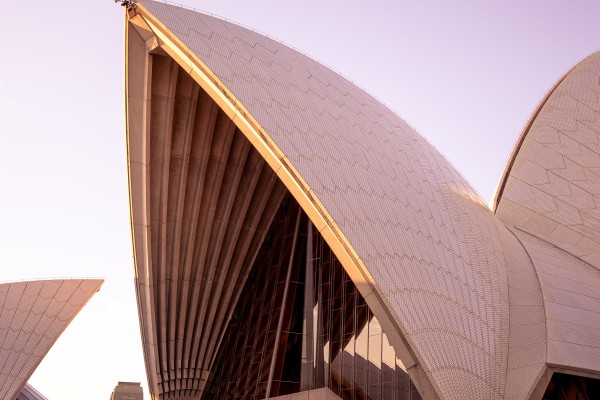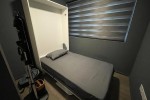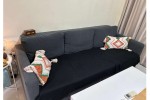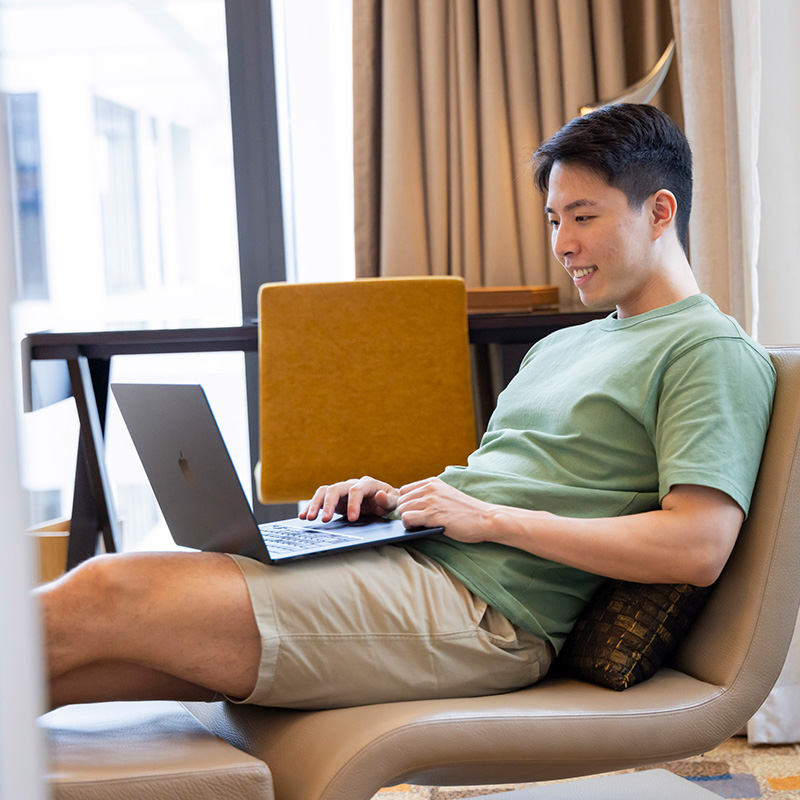Unpacking Your Boxes According to Feng Shui


In predominantly ethnically Chinese Singapore, lots of people practise a concept known as “feng shui” in their home design to some extent. After all, everyone wants a peaceful, prosperous, and joyful home–which feng shui is all about.
Even iconic landmarks in Singapore are supposedly planned according to feng shui principles.
Take, for example Marina Bay Sands, which is steeped in feng shui principles. The main building with its high infinity pool allows dragons from heaven to play and drink from a height while the low-lying Art Science Museum is shaped like a cupping hand, ready to receive the positive energy from the dragons.
Even the Merlion that spouts water from its mouth is–we hear– by feng shui design. The water it spouts tirelessly from its mouth into the river is supposed to signify the neverending inpouring of prosperity and good fortune to Singapore.
If this is your first introduction to the concept, you’re in luck–we’ve put together a simple guide on how you should unpack and organise after moving into your new home according to feng shui principles.
And in any case, a lot of these make plenty of sense even to someone who is sceptical about it, like keeping the home bright and airy, and stepping through your front door with positive thoughts and vibes.
Piqued your interest yet? Let’s find out more.
Introduction to Feng Shui
Feng shui, is the ancient art of geomancy that originated in China. Literally meaning “wind water” (风水), it has been practised since ancient times to choose the orientation and site of buildings, homes, structures based on the direction of elements like wind and water.
Rooted in the Taoist belief that chi exists in everything and is the central force that guides the universe, and that chi is made up of both yin (black or dark) and yang (white or light) elements–feng shui simply seeks to balance the flow of positive chi by organising the environment.
With that understanding, feng shui today is used mainly to design harmonious and prosperous homes in both Eastern and Western cultures.
Principles of Feng Shui
Balancing the Five Elements
Understanding that the world is made up of five elements and learning how to balance them well is one of the basic tenets of feng shui. These elements interact with each other and affect the room’s energy either negatively or positively, depending on several factors including the positioning of furniture, windows and doors, and textures and colours used.
Some rooms naturally have more of one element than others, causing an imbalance in the energy that can be offset by adding items or shifting things around.
For example, the bathroom is often considered an unbalanced space due to water flowing out constantly (from the drainage). Placing wood and earth elements in the form of wood textures, earthy colours, and plants in the bathroom will help to slow the energy loss and bring harmony back to the space.
Read on for a quick summary of what each element is about:
-
Wood (木) – symbolises growth, expansion, and vitality. Incorporating plants and furniture made of wood, as well as tall column shapes, are a great way to add the wood element to a space. Associated colours are green and blue.
-
Fire (火) – symbolises energy, transformation, and passion. Introduce things that produce light and heat such as lamps and candles, as well as triangle-shaped objects, to add the fire element to your home. Associated colours are red and orange.
-
Earth (土) – symbolises stability, protection, and care. Objects made of ceramics, stone, and crystal, as well as square and flat objects (like rugs) are rich in the earth element. Associated colours are yellow, brown, and beige.
-
Water (水) – symbolises wisdom, abundance, and purification. Add the water element to your home with water features, mirrors, and even an aquarium, or with wavy shapes. Associated colours are dark blue and black.
-
Metal (金) – symbolises clarity, precision, and joy. Decorative items made of metal like planters, sculptures, metallic frames, light fixtures, and circular objects in general are a simple and fun way to introduce the metal element in your home. Associated colours are white, grey, and metallic tones.
The elements interact both productively and destructively with each other. Balancing these will go a long way in ensuring the environment is harmonious and smooth. Click HERE for a more detailed explanation of how the elements affect each other.
Commanding Position
While there are many ways to arrange your furniture to optimise energy flow, identifying the Commanding Position in each room will help you place your most important pieces of furniture in each room in the optimal spot.
Simply put, the Commanding Position is the place in the room that empowers you the most. More often than not, it is the spot where you have a clear, unobstructed view of the door and the whole room, with a strong backing.
Identifying this Commanding Position is particularly useful in the bedroom and home office, as these are spaces you spend the most time in, resting and making important life decisions.
Smooth Chi Flow
Feng shui is all about chi, so ensuring a smooth flow is imperative. Keeping your home neat, tidy, and clutter-free is the best way to do this. Opening up your doors and windows and keeping them unobstructed is also important to keep chi flowing smoothly throughout your entire home.
Yin and Yang Balance
Balancing the yin (restful and calm) and yang (energetic and active) energies in your home is imperative to maintaining a harmonious and positive sanctuary.
You can do this by emphasising either yin or yang in different rooms in your home, according to their function. For example, the bedroom should be high in yin energy, to promote rest, rejuvenation, and restoration; while the home office or study should be high in yang energy to stimulate productivity, efficiency, and dynamism.
You can use furniture materials and placements, decorative objects, and lighting to achieve this.
How to Apply Feng Shui When Unpacking Your Boxes

While there are no fixed feng shui principles to determine the order in which you should unpack your boxes to channel positive chi, we’ve come up with a pretty intuitive and fun way to do this!
The main idea is to create a clutter-free, bright, pleasing, and restful space.
We take you through the entire process from stepping through your front door to all the rooms and specific elements to look out for.
Remember, there are plenty of conflicting dos and don’ts when it comes to practising feng shui, but the fundamental truth is that you must feel safe and at peace with however you choose to organise your home. The best home is one you feel comfortable in.
1. Front Door
Your main door is the entrance of all chi into your home–good and bad–so make sure you step through your front door with a huge dose of positivity.
Carry items which symbolise good luck to multiply this: some ideas include fresh fruits like oranges, pomegranates, peaches, and apples (which represent prosperity, opportunity, good health, and safety), feng shui coins, crystals, or plants.
Unpack all essential entryway items first and clear all boxes out of the way as soon as possible, to invite positive energy in through your door. You can also place a mirror or a plant at the entryway (just not directly facing the door!) to attract more light and expand the space.
Just for extra fun: The Chinese also roll a pineapple through the front door when they first open the door to their new homes. This is to roll in good fortune and wealth, because the Hokkien term for the pineapple sounds very much like the term for welcoming prosperity!
2. Kitchen
The place where the home’s inhabitants and its guests are given nourishment is the kitchen, so this is where you must unpack next. The kitchen is considered the heart of the home, which lays a solid foundation of health and abundance with the food that comes out from there.
Start by unpacking frequently used kitchen appliances, tools, and utensils, and immediately keep them away. This is to ensure that your kitchen is functioning well from the get-go, and that you are able to nourish your family, keep everyone healthy and in good spirits.
3. Bedrooms
Next up, prioritise the bedrooms. The bedrooms are the sanctuary in your home, and a place for regeneration and relaxation. It’s also extremely welcoming to retreat to an organised bedroom after a stressful day of moving!
Set your bed up in the Commanding Position first–that’s where you have a clear view of your door but you’re not lying facing it directly. The bed should also be against a solid wall, for a feeling of firm security. Do spend some time thinking about this, because the bed is the most important piece of furniture in your home. After all, you do spend a good chunk of your life lying in it each day!
Once you’ve settled the position of the bed, move on to unpack your personal items and store them away neatly, to keep your bedroom clutter-free. Even if you’re not sure about whether you believe in feng shui or not, remember that a tranquil bedroom environment promotes much better sleep.
4. Living Room
In the living room, the energy should be bright and harmonious. As the social centre of your home, you’ll want to ensure that positive energy flows right through the space, so that deep connections and bonds can be forged.
Start with your sofa and chairs, you’ll want to arrange them in a welcoming manner that facilitates conversation. Turn them towards each other so that everyone who sits on them will be facing each other.
Open up all the windows in your living room as soon as possible, to let light in and also to ensure the smooth flow of positive chi into your new home.
5. Bathrooms
Finally, the bathrooms. We’ve saved them for last because bathrooms have long been associated with the flow of negative chi thanks to their drainage systems (think energy being drained away).
However, if you look at the bathroom as a place of refreshment and rejuvenation, you’ll understand that they are essential to maintaining a balanced chi throughout your home too.
Keeping them clean, dry, and bright will help maintain the positive energy, so it’s crucial that you start unpacking by putting away all your toiletries into the designated storage areas, to keep countertops neat and open.
Lucky dates to move

Pick a lucky date to move and unpack here, just to be absolutely sure of starting your life in Singapore on the absolute right foot. And most importantly, enjoy the process–it’s an exciting ride!
What do our customers say?
